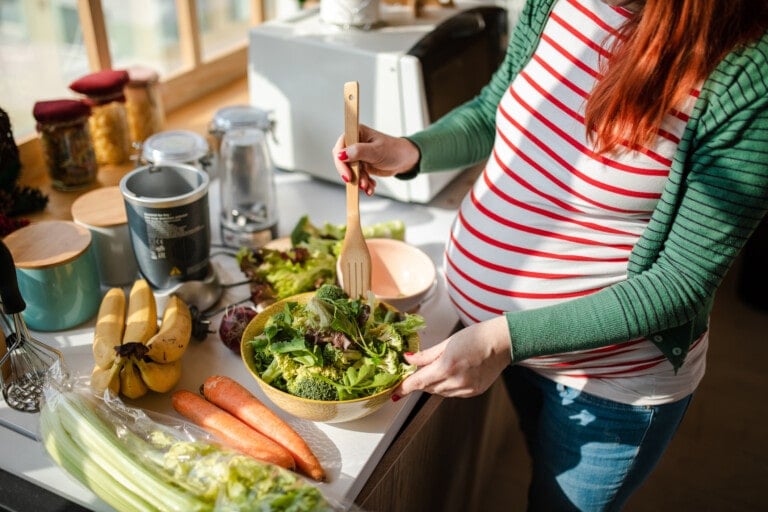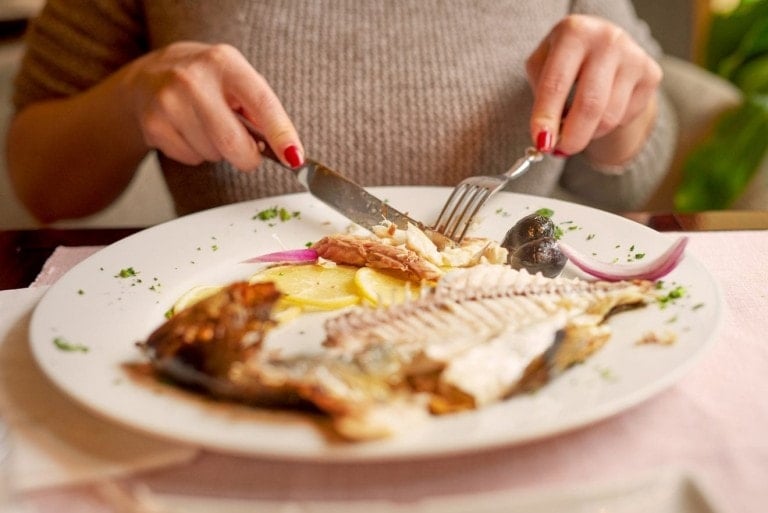Women often say the second trimester is the easiest of the three. The nausea and vomiting, food aversions, mood fluctuations, lack of energy, and all of the other not-so-great aspects of pregnancy that you may have gone through in the first three months have come to an end (or are fading and will end soon).
At this point, you have also had some time to adapt to the changes your body is going through. Your belly will now start expanding at a much faster pace. Your hormones will likely give you a sense of happiness and energy and make you feel more like yourself than in the first three months. You’re also most likely to experience that “pregnancy glow” during the second trimester. This makes it a perfect time to start planning the baby’s room, celebrate with a baby shower, make arrangements at work for maternity leave, take a vacation (who wouldn’t love a babymoon?), and—most important—focus on superb nutrition. You should eat some specific foods during the second trimester to benefit both the baby and yourself.
Which Foods to Eat During the Second Trimester
Although you did not need additional calories to support your developing baby in the first trimester, you do need some extra energy now. Your baby’s growth is about to take off! However, as I mentioned earlier, you don’t need to eat for two (contrary to that old saying). Throughout this trimester, you need roughly 340 calories a day in addition to your regular daily calorie intake.1 These extra calories will help provide the extra nutrients your growing baby and body need in the second trimester.
Wondering what foods you should eat during the second trimester? Here are some tips to get you started.
1. Get Your Vitamin B12
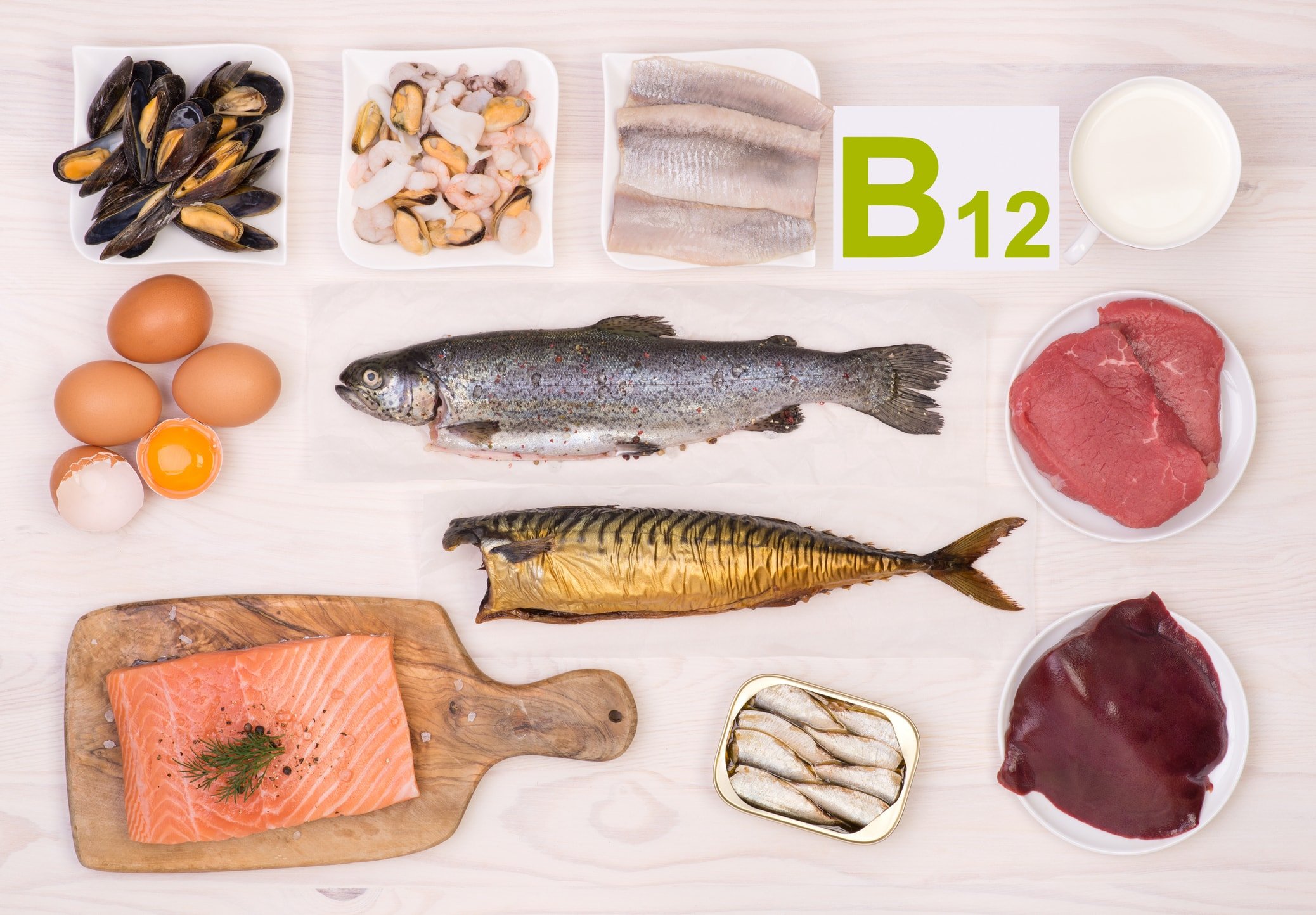
Vitamin B12 is a nutrient that some people (about 6% of the population) are deficient in.2 The lack of these vitamins has been shown to be detrimental to fertility. Also, research shows a link between low maternal vitamin B12 during pregnancy and insulin resistance in children at age six, highlighting the importance of adequate nutrient intake for both the short and long-term health of your baby.3 Excellent sources of B12 include meat, fish (such as cod or salmon), dairy products (milk, cheese), and eggs.
2. Maintain your Zinc Intake
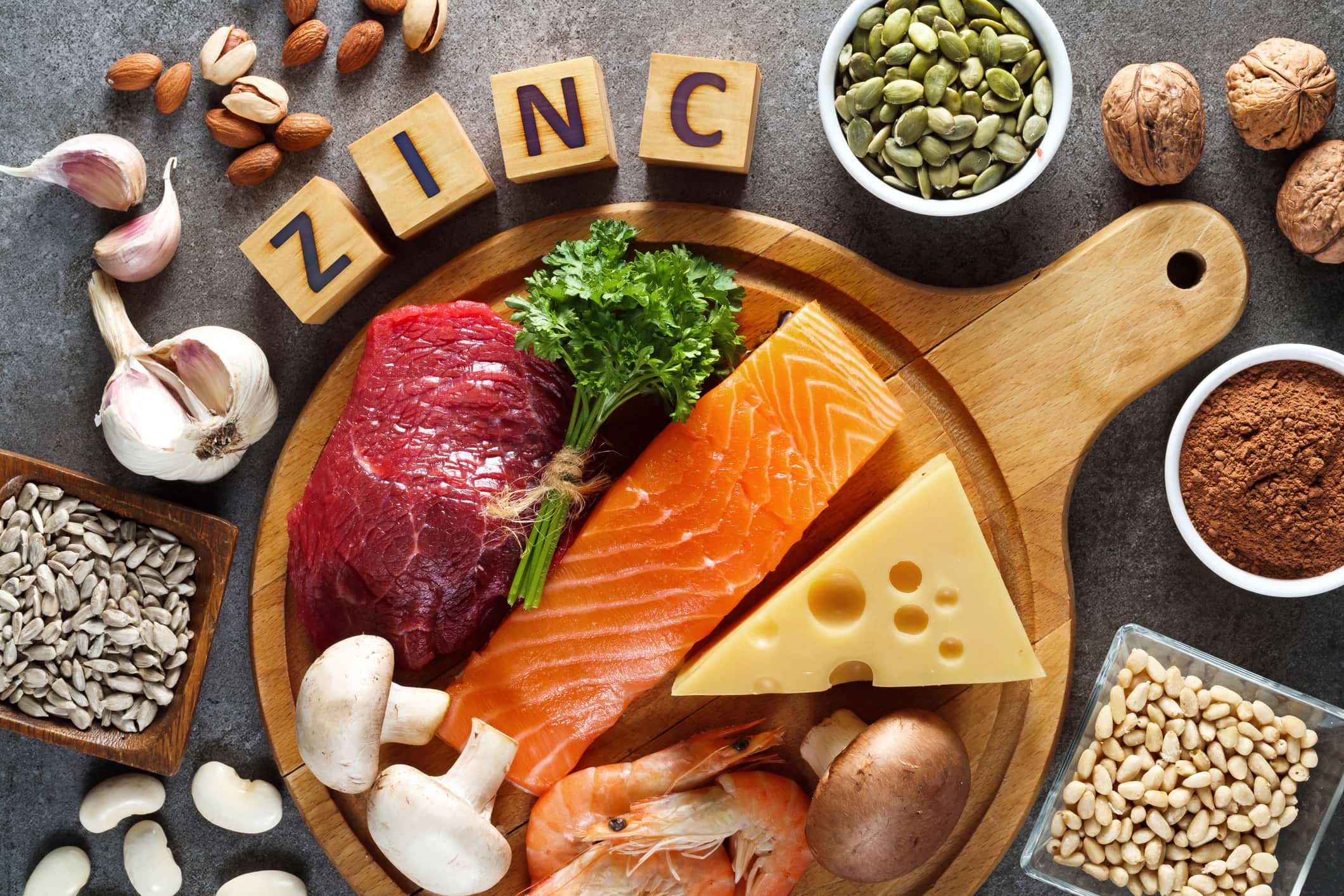
It is essential to consume enough zinc during pregnancy due to its critical role in cell and protein development and DNA synthesis. Research shows low levels of zinc have been linked to the development of gestational diabetes.4 Good sources of zinc include fortified breakfast cereals, lamb, ground beef, turkey, Alaskan king crab, tofu, and pumpkin seeds.
3. Eat Peppers as a Midday Snack!

Peppers are very low in calories and high in fiber, serving as a great snack throughout the day. They are packed with many vitamins and minerals that aid in suppressing inflammation during pregnancy. Some of these compounds are beta-carotene, lutein, flavonoids, and lycopene. Additionally, the consumption of peppers alongside an iron-rich food can help with the absorption of that nonheme iron. Peppers can be incorporated into salads, omelets, and other main dishes and served as a snack with hummus or another nutrient-filled dip!
4. Fill up on Fruits
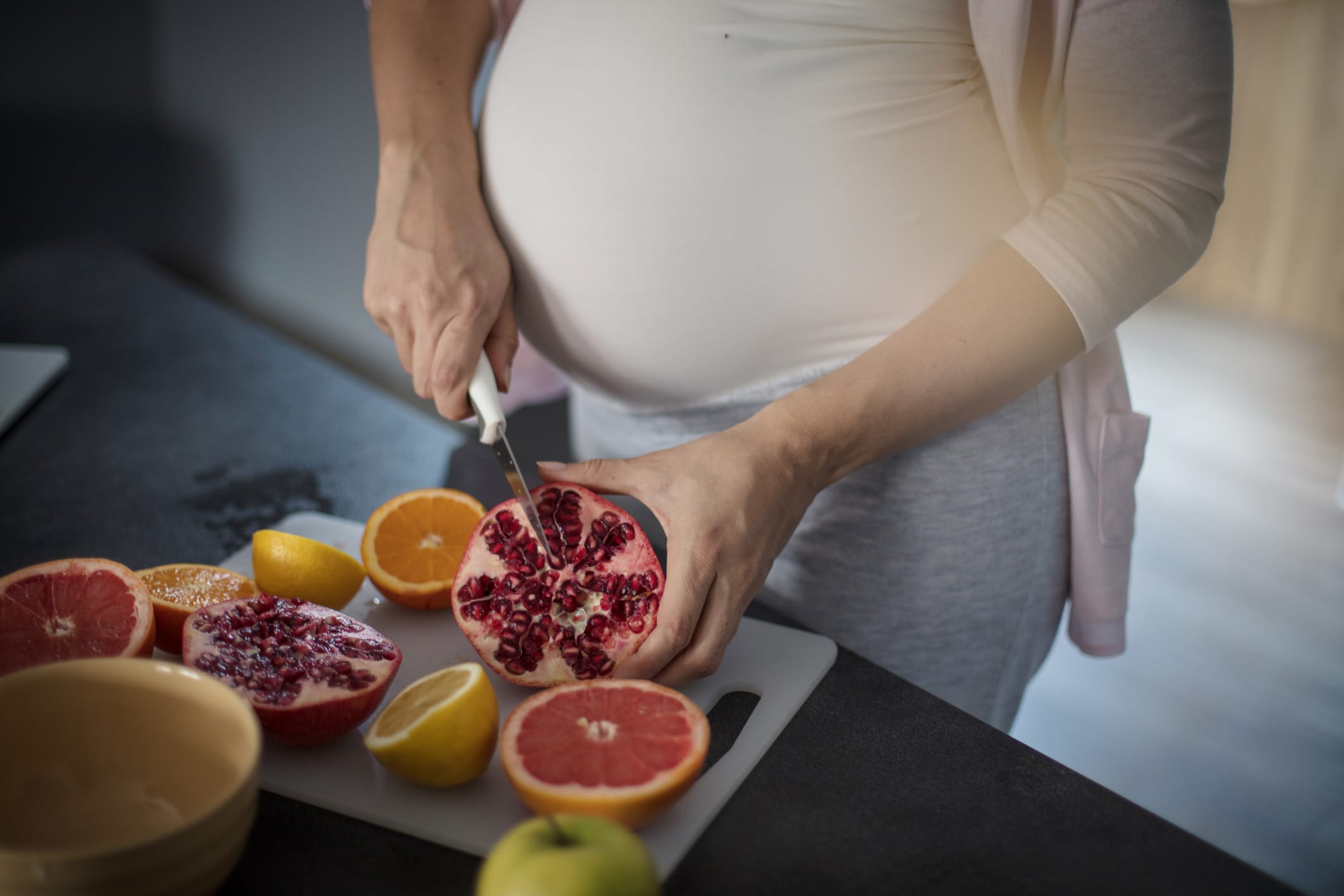
Fruits can be very high in flavonoids, which can have many health benefits. Specifically, pomegranates include quercetin and anthocyanins. Both of these compounds are very important for inflammation that can be associated with pregnancy. Additionally, research shows that these compounds can offset the adverse effects of environmental pollutants on fertility.5
Pomegranates can be eaten as a snack or used in sweet and savory dishes. Try putting pomegranate seeds on the top of your waffles during breakfast or putting some on top of a lamb dish for a more savory taste. While pomegranates are sometimes harder to find and more expensive, many other fruits that provide anti-inflammatory compounds can be substituted!
5. Try Spinach as your Salad Base
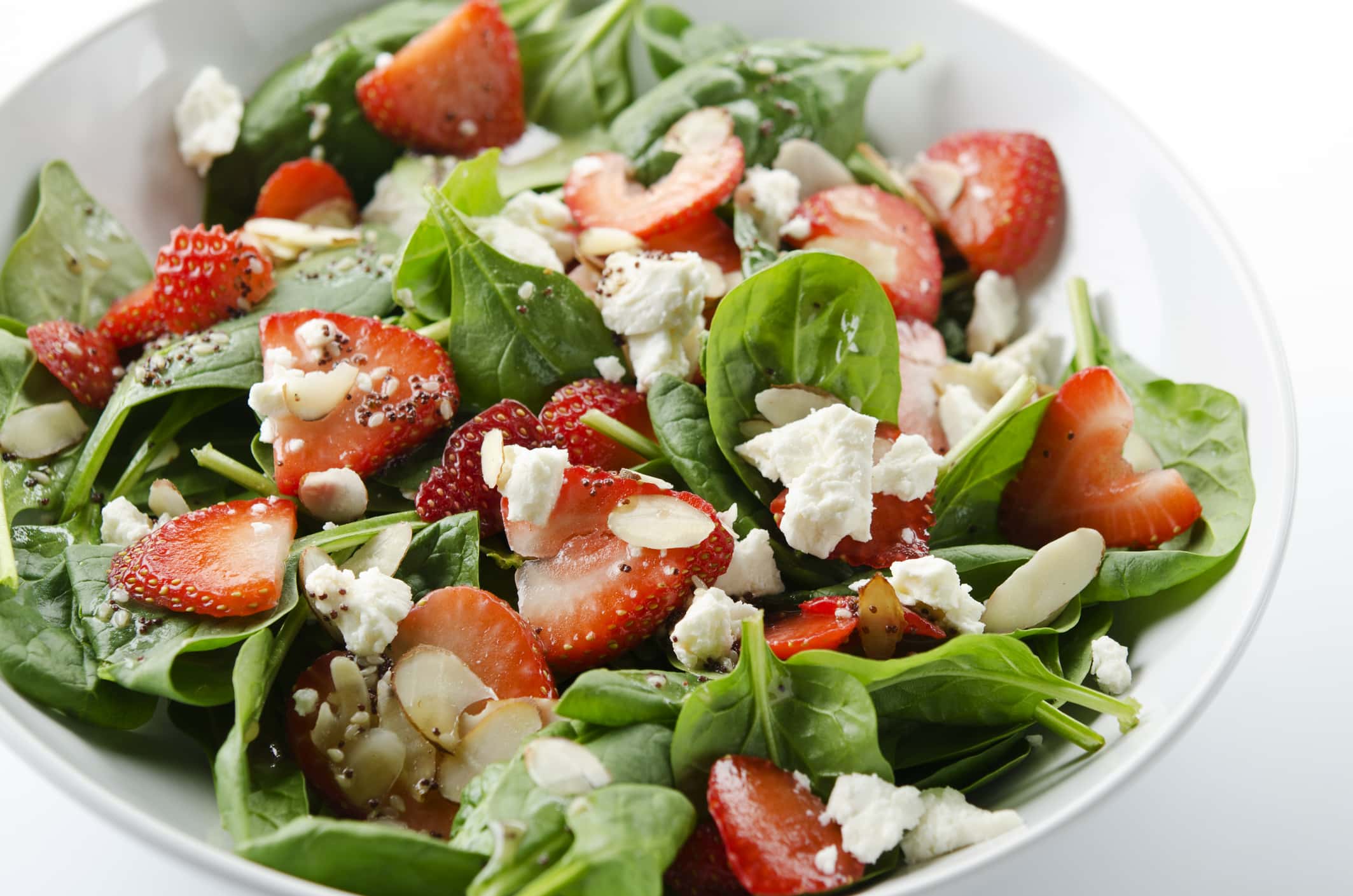
While we may not tend to think about the base of our salads, substituting spinach as the choice of the base may be very beneficial to your pregnancy, especially in the second trimester. Spinach is loaded with nutrients such as folate, fiber, choline, iron, magnesium, and many more! Specifically, its high nitrate concentration benefits heart health by reducing blood pressure and increasing blood flow within our tissues. When our body’s working to support a baby’s growth, our blood must be abundant throughout our tissues to keep the baby healthy (and ourselves). Additionally, spinach may aid in regulating the usage of oxygen in our bodies, assisting in physical activity, which is very important during pregnancy!
6. Try Wheat Bran
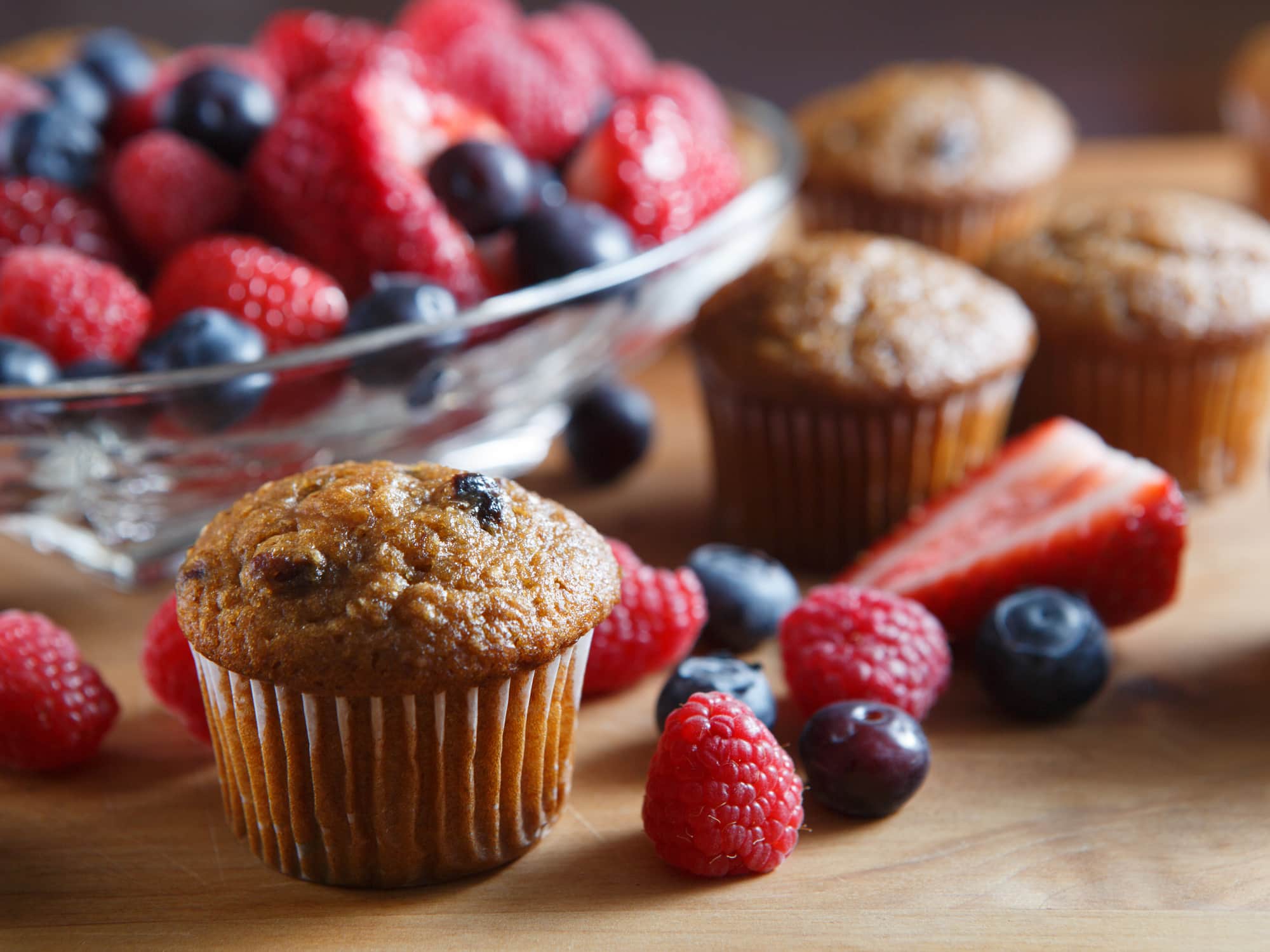
Bran can be a very efficient source of many vitamins and minerals our body needs! It is loaded with selenium, magnesium, omega-3 fatty acids, and antioxidants. When our body is changing, antioxidants are vital to combat the subsequent inflammation that occurs.
Put It All Together!
Incorporating these essential foods to eat in your second trimester will significantly benefit you and your growing baby. It may seem overwhelming to get all of the nutrients into your day. But it’s relatively simple when you build nutrient-packed meals! There are several ways to create your meals to include everything your body needs, and breakfast is the perfect meal to get off to a great start. Here is one example of a healthy, nutrient-dense breakfast adapted from my book, What to Eat When You’re Pregnant.
Overnight Protein-Powered Oats with Berries
If you are looking for a healthy and easy way to start your day, look no further. Overnight oats are easy to prepare the night before, and the protein will help you start your day feeling great. Plus, the wheat bran and fruit in these will give you a boost of antioxidants and phytoestrogens.
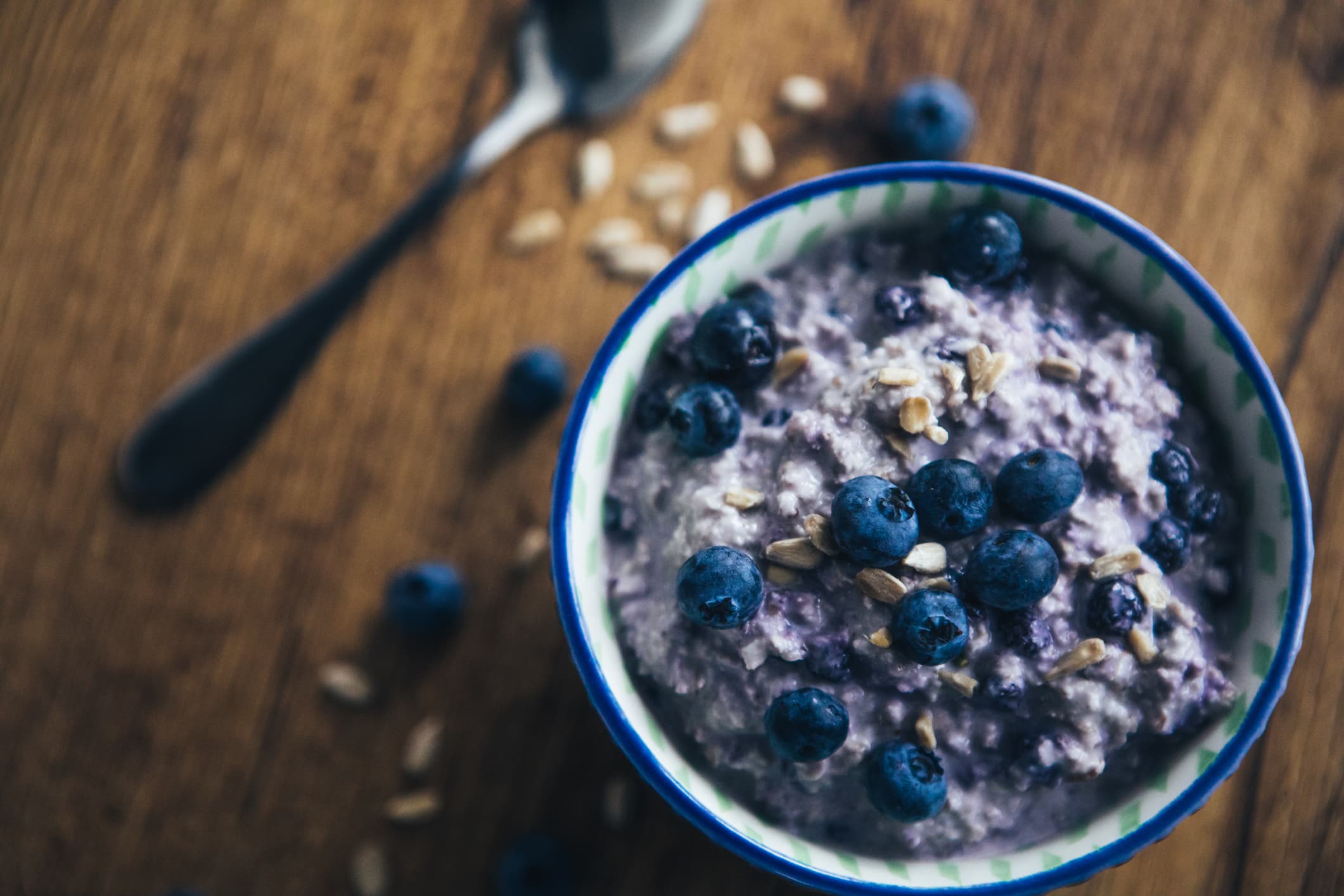
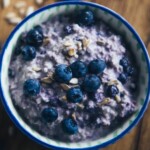
Overnight Protein-Powered Oats with Berries
Description
If you are looking for a healthy and easy way to start your day, look no further. Overnight oats are easy to prepare the night before, and the protein will help you start your day feeling great. Plus, the wheat bran and fruit in these will give you a boost of antioxidants and phytoestrogens.
Ingredients
Makes one serving.
- 1/2 cup rolled oats (Fiber, B-Vitamins, Iron!)
- 1/2 cup milk of your choice: almond coconut, dairy, etc. (Vitamin B12!)
- 1 tablespoon wheat bran (Selenium, Magnesium, Omega-3!)
- 1 teaspoon maple syrup
- Pinch of sea salt
- Choice mixed berries: raspberry, blueberry, strawberry, strawberry, banana, or pineapple (Anti-inflammatory and Vitamin C!)
- 1 tablespoon slivered almonds or crushed walnuts (optional) (Zinc!)
Instructions
Add oats, milk, wheat bran, maple syrup, and salt into an 8-ounce container. Stir to combine. Add toppings. Cover tightly with plastic wrap or mason jar lid and refrigerate overnight. In the morning, mix in nuts (optional), eat cold straight from the jar, or add a little milk and rewarm in the microwave. Enjoy!





















